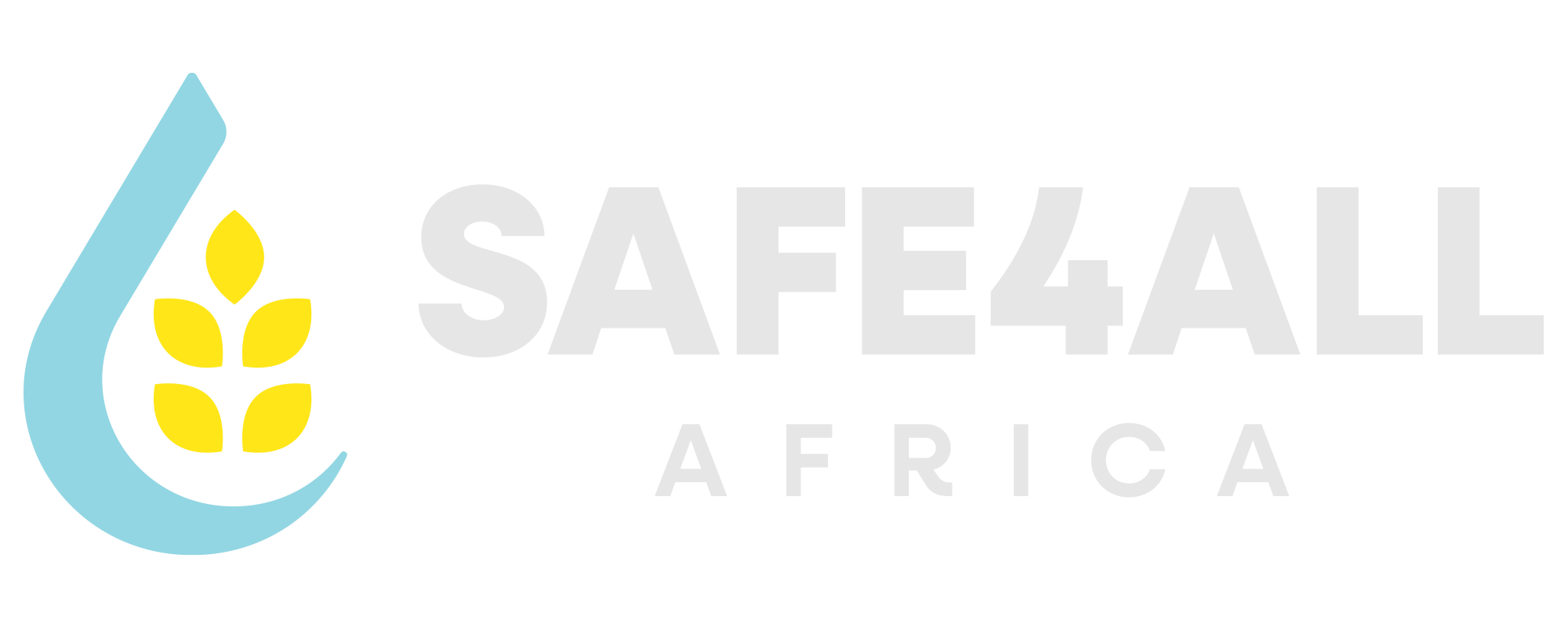SAFE4ALL Africa Kenyan Team Showcases Climate Resilience Tools at JKUAT Conference
March 25, 2025
Harnessing Innovation for Sustainable Development in African Communities
The Jomo Kenyatta University of Agriculture and Technology (JKUAT) recently hosted its annual Scientific, Technological, and Industrialization Conference at its Main Campus in Juja, themed “Promoting Research and Innovation for Sustainable Development.” Among the standout exhibitors was the SAFE4ALL Africa Kenyan team, who showcased cutting-edge tools designed to bolster climate resilience, food security, and disaster management across the continent.
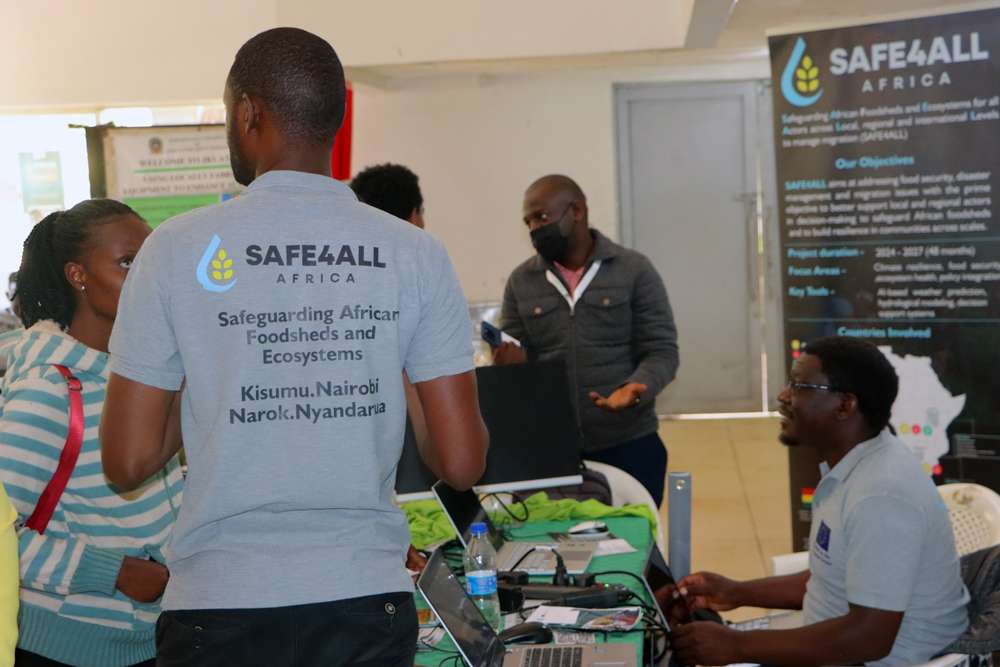
Conference Context
Since 2005, JKUAT has convened this conference to foster synergy among researchers, policymakers, industrialists, and funders, driving industrial growth through innovation. The 2025 edition, held from 2 to 21 March, provided a platform for the SAFE4ALL Africa project, a collaborative initiative targeting Kenya, Ghana, and Zimbabwe, to highlight its mission of safeguarding ecosystems and foodsheds while addressing migration challenges.
SAFE4ALL Africa: A Crucial Link between Global and Local Knowledge
Led by Prof. John Wesonga, the Kenyan team, comprising Emmanuel Ochola Matsaba, Phylip Oyier, Calvin Kebati, and Ruth Maru, plays a crucial role in the project. They bring their local knowledge and skills to the table, emphasizing the project’s goal to integrate EU climate services with this expertise. Operating in Nairobi, Kisumu, Narok, and Nyandarua counties, SAFE4ALL focuses on empowering rural and urban communities to make informed decisions amid climate variability.
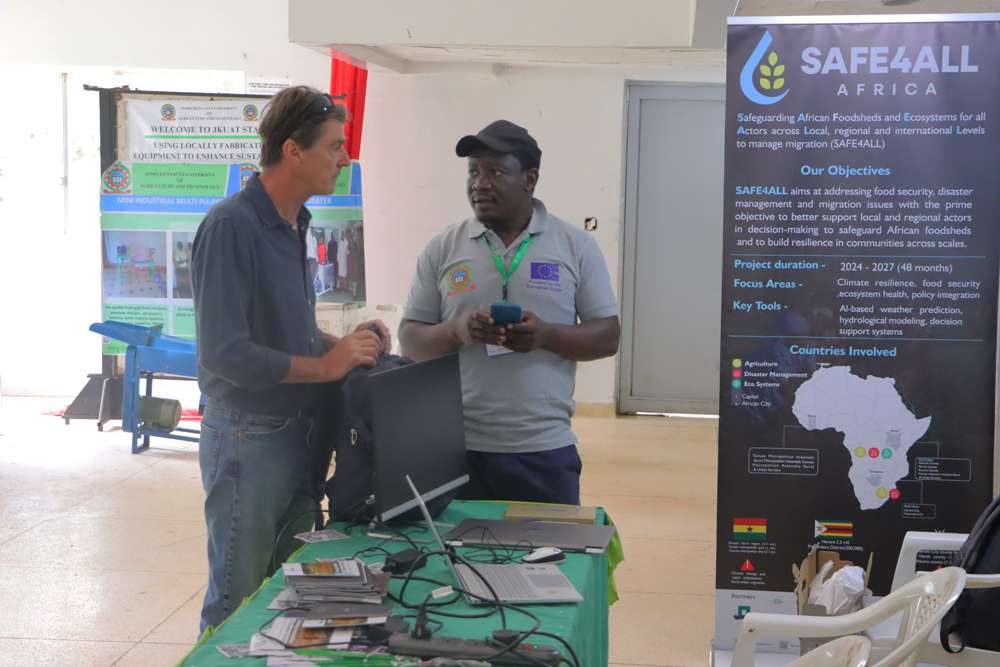
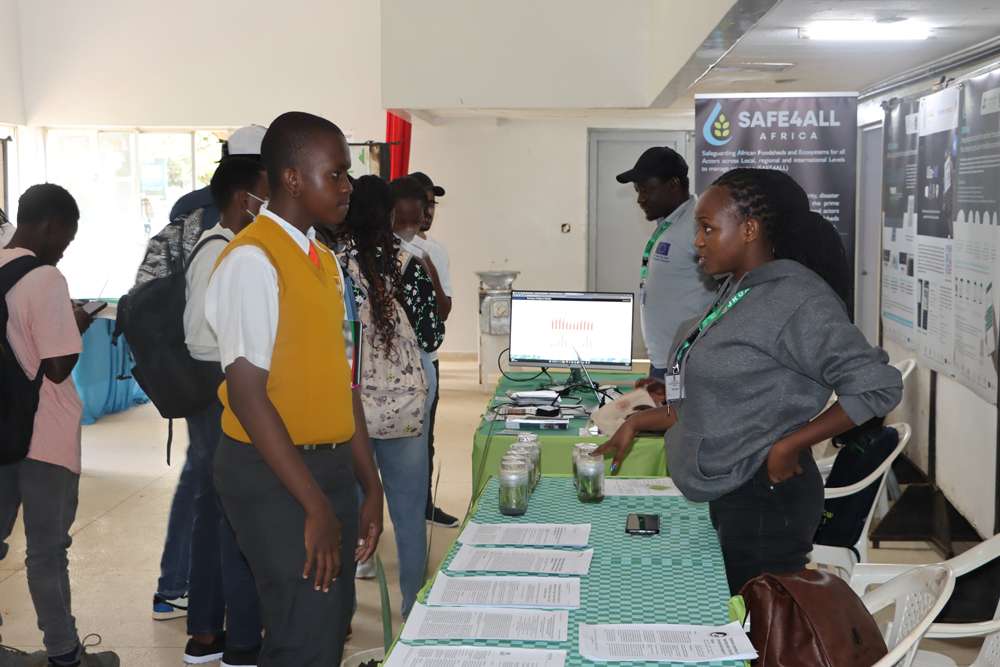
Innovative Tools on Display
- Climate Atlas (https://www.climate-atlas.ke/)
This digital tool offers smallholder farmers, agricultural officials, researchers, and policymakers insights into the impacts of climate change on Kenyan agriculture. By visualising future climate scenarios, the Atlas aids in planning and training, ensuring stakeholders can adapt farming practices to shifting weather patterns. Learn more about the Climate Atlas HERE. - Uliza-WI Chatbot
Named after the Swahili word “Uliza” (meaning “ask”), this Telegram-based chatbot provides real-time climate-smart services. Features include:
- Weather forecasts: 7-day forecasts, extreme rainfall alerts, and seasonal outlooks.
- Tailored farming advice: Crop-specific guidance on planting, fertilizing, and harvesting, adjusted to local conditions.
- Two-way communication: Farmers can report field conditions, allowing for the continuous refinement of advisories.
Available in multiple languages, Uliza-WI bridges the gap between meteorological data and practical farm-level decisions.Learn MORE to explore the Chatbot’s features.
- DROP App
This hydroclimate tool, the DROP App, integrates scientific and indigenous weather data to provide localized rainfall and soil moisture forecasts. Its potential to enhance agricultural productivity in water-stressed regions is a reason for hope, as it combines scientific data with on-ground observations.
Living Lab Initiative
A highlight of the exhibition was Emmanuel Ochola’s disclosure of a “living lab” in Kenya, designed to test and scale SAFE4ALL innovations in real-world settings. This initiative underscores JKUAT’s commitment to participatory research and innovations, ensuring solutions are co-developed with communities.
Impact and Collaboration
The conference drew together students, researchers, agribusinesses, policymakers, media representatives, industrialists, and funders, fostering sustainable development through innovation. SAFE4ALL’s tools resonated particularly with agricultural stakeholders, who recognized their potential to mitigate migration driven by climate stressors and food insecurity.

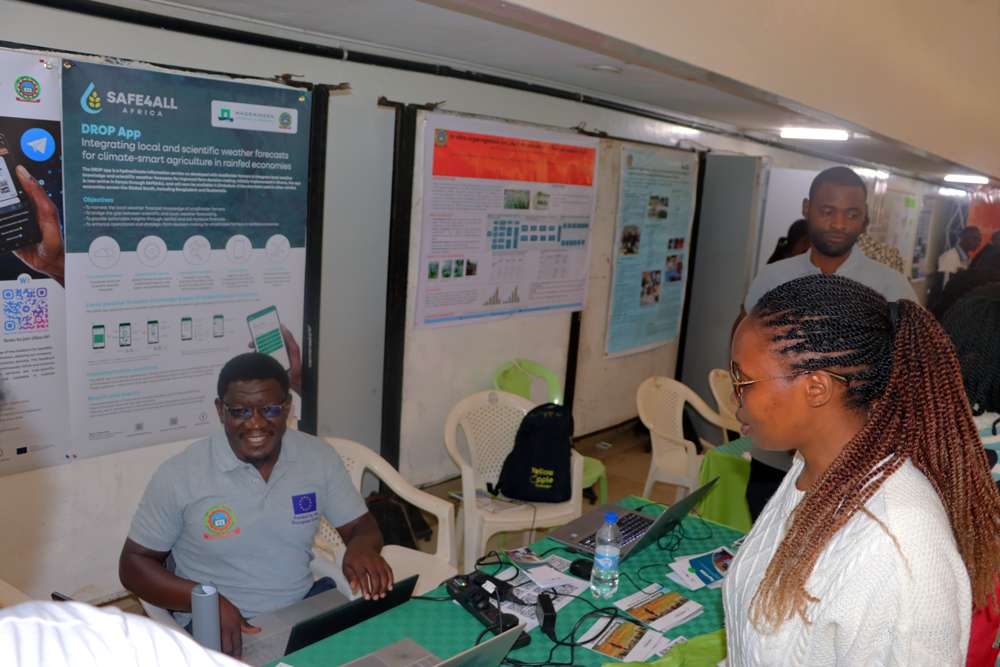
The conference drew together students, researchers, agribusinesses, policymakers, media representatives, industrialists, and funders, fostering sustainable development through innovation. SAFE4ALL’s tools resonated particularly with agricultural stakeholders, who recognized their potential to mitigate migration driven by climate stressors and food insecurity.
During the conference, visitors at the SAFE4ALL booth shared their impressions through a short survey. Respondents praised the clarity and relevance of the tools, particularly valuing features like predictive insights for planning, localization, and user-friendliness. While they highlighted opportunities to further improve accessibility and accuracy, all participants expressed interest in staying updated and collaborating with the SAFE4ALL team, reinforcing the project’s role in empowering local communities.
By merging global climate expertise with local African insights, the SAFE4ALL Africa project exemplifies how innovation can drive resilience across scales. As Prof. Wesonga noted, “Empowering communities with timely, actionable information is key to safeguarding our ecosystems and futures.” With tools like the Climate Atlas, Uliza-WI, and DROP App, the team is poised to transform decision-making in Kenya and beyond, ensuring a sustainable tomorrow for all.
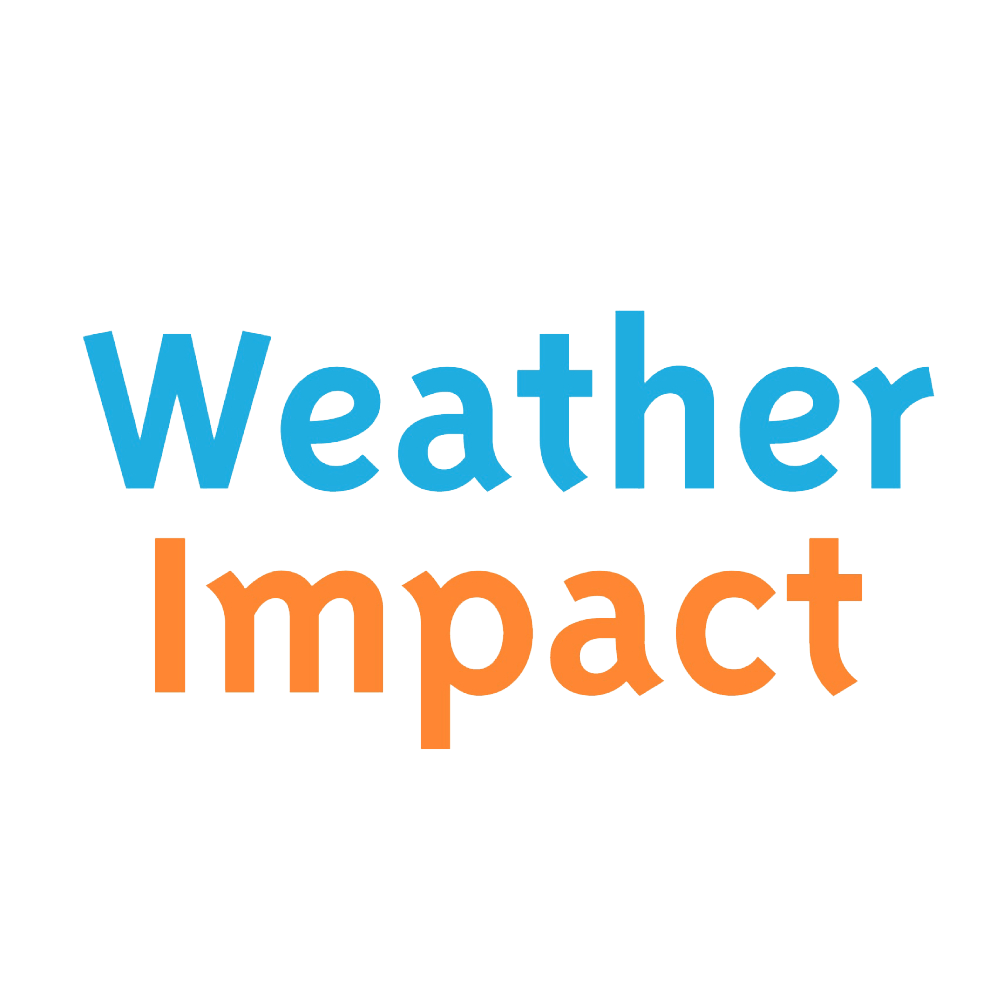
Weather Impact (Netherlands)
delivers digital weather and climate services to strengthen resilience in sub-Saharan Africa. Specializing in agro-meteorology, it provides tailored forecasts, agro-advisories, and extreme weather alerts for farmers and agribusinesses. As a key partner in SAFE4ALL, Weather Impact is developing a chatbot integrating climate services to support farmers in Ghana, Zimbabwe, and Kenya. It also leads efforts to ensure the sustainability of SAFE4ALL’s tools through market research, business models, and local capacity-building. By advancing climate resilience and food security, Weather Impact empowers African agriculture for a more sustainable future.
